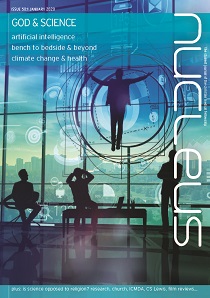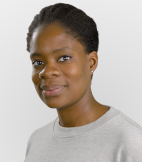With researchers continually pushing forward the boundaries of biomedical science, what we know and how we use that knowledge is growing. Almost every month there is a new advancement or innovation that hopes to impact positively the health and well-being of humans. As Christian doctors, nurses and midwives, how does our Christian worldview shape our engagement and response?
translational medicine explained
The process of going from bench (T0) to bedside (T1) is known as translational medicine or translational research. (1) This definition is now expanding to include not just taking research into clinical practice but also translating this to best clinical practice (T2), disseminating that into communities (T3), modifying population behaviour (T4) and ultimately improving global wellness (T5). (2) Taking it further, some would argue that we need to begin at the bedside with a clinical issue, as starting with fundamental research rarely succeeds. (3) It doesn't quite roll off the tongue as easily, but this would be a 'bedside to bench to bedside to global village approach!' (4)
To fully understand translational research, we need to acknowledge the presence of gaps between phases (T0-T5). The biggest is known as 'the valley of death', the gap between fundamental research and developing a medical 'product'. (5) These gaps can hold up the process; this might be due to several factors including lack of funding and primary investigators. (6) There also needs to be a good flow of information between the phases. (7) For example, we know that beta-blocker therapy improves outcomes following myocardial infarction (T2), but only 60% of eligible patients are treated with this therapy (T3). So, there is a gap in the flow of information between T2 and T3 phases in this case.(8)
The potential impact of translational medicine is immense, and it seems everyone from academic centres, to industry, to individual hospitals want in, with hundreds of millions of pounds being invested into this research globally. (9)
Should bioethics or even our Christian worldview have a seat at the table as we navigate the complexities and impact of this research? Or are they just further roadblocks to translational research and all that it hopes to achieve? (10)
response from bioethics
Traditional bioethics may not be sufficient to help us fully navigate the entire translational process as it typically focuses on the phases and does not focus on the gaps - the transfer of knowledge. For example, publishing work that has been critiqued by peers is the mainstay of biomedical research. Presenting methodologies is a way to reproduce and validate research, but problems may arise if doing so allows it to be used for harm.
towards a biblical theology
Having a biblical ethical framework and utilising key biblical principles to guide our thinking and actions is helpful. There are often no easy answers or quick fixes and we must work hard to apply these principles well. We have seen throughout history the cost of dubious morality (11) in research and the importance of rigorous testing to maintain patient safety. (12) We need to learn from history as we move forward into the future.
In Genesis 1, we read God's first commands to humans, including the call to 'fill the earth and subdue it'(Genesis 1:28). From this we see that work was part of the 'very good' (Genesis 1:31) world that God created, before the fall.
'Subduing the earth' here, a translation of the Hebrew word kabash, has been debated among scholars - is God pronouncing a forceful dominance?
Many, including the multidenominational, 1986 Christian declaration on nature, have concluded that this dominion is in fact stewardship. (13) Stewardship here is: 'utilizing and managing all resources God provides for the glory of God and the betterment of His creation'. (14) The Bible also warns us that things may be doable, 'but not everything is beneficial… not everything is constructive' (1 Corinthians 10:23). How then do we work and be good stewards in the context of research and its application in the clinical setting?
translational medicine in practice - CRISPR-Cas9
The moral and ethical challenges facing translational research are exemplified best in the emerging technology of gene editing through CRISPR-Cas9.
Clustered Regularly Interspaced Short Palindromic Repeats (CRISPR) is based on a bacterial immune system function used to fight viruses. Like the 'Find' function on a computer system, the Cas9 protein, normally present in bacteria, can find and cut specific DNA sequences. It does this by using a guide RNA to recognise that specific sequence. What scientists have done with the CRISPR-Cas9 system is create the specific segments of guide RNA and introduced it to a target cell, where it can then be used to delete, insert or modify specific sequences of DNA. (15),(16)
Currently this technology is being utilised by a diverse group of people including scientists who work out of research labs and translational centres across the globe. Scientists, for example, are looking at the zebrafish's ability to regenerate and seeing if their genes can be utilised to grow organs for humans. On the other end are the biohackers, often people from non-biomedical backgrounds working out of the kitchens and garages who are buying CRISPR kits online for a few hundred dollars. They are seeing how they can harness this technology in anything from improving dog breeding to trying to create new treatments for HIV.(17)
This technology it seems, is rapidly being translated from T0 to T1. It is interesting to examine the motivations driving this. Scientists, including CRISPR-Cas9 co-founder, Professor Jennifer Doudna hope it can be used to treat genetic conditions such as cystic fibrosis and sickle cell. (18) Biotech companies are set to make millions from new FDA approved therapies for some of the most debilitating genetic conditions. Spiranza, a gene-therapy for spinal muscular atrophy (SMA) costs $750,000 in its first year and $375,000 annually thereafter. (19),(20) In 2018, He Jiankui, a Chinese scientist, claimed that he had used CRISPR-Cas9 to delete a gene in human embryos in order to make babies resistant to HIV. In an online video, he stated that those embryos had developed into a set of healthy twins named Lulu and Nana. (21) Biohackers like Josiah Zayner want to put this technology in the hands of the people and away from research scientists and big pharmaceutical companies, so that they can freely use it for their benefit. (22),(23)
As these various stakeholders look at CRISPR, they seem very much stuck in the T0/T1 phases of their own pursuits and critiques. Many scientists express concerns over the safety of gene editing as germline cells could be passed to successive generations. The lack of justice is seen in this technology being the sole preserve of researchers, pharmaceutical companies and the rich, the potential dangers of biohackers anywhere in the world utilising this technology, for any purpose.
So, let us step back and look at the entire translational process through the overarching narrative of the Bible. The ultimate aim of all of this research is the betterment of humanity. The Christian recognises that humans were created by a loving God in his image, that this is what gives us value and dignity regardless of our age, sex, geography, wealth or even disability. (24) The fall, has caused brokenness primarily with God, but also with each other, the world around us and our own bodies. God has not left us in this state but offers us redemption and comfort through his Son. His Son, who was conceived and recognisable as our saviour in utero, (25) was born, suffered and died for us. He understands what it is to suffer and feel alone and abandoned. He comforts those who are unwell and mourning and calls us to do the same, (26) as stewards restoring flawed masterpieces rather than as Lego kit creators. (27) We all want to see the furtherment of humanity, but the Christian worldview realises that the ultimate betterment is in the new creation, through the redemption offered by Jesus Christ, where there will be no more pain, suffering or tears. (28) This gives us hope for the future in the midst of present disease and suffering.
conclusions
Christian doctors, nurses and midwives need to be involved as clinicians and researchers in the entire translational process. We can often get siloed in our own area whether that be clinical care, lab research or public health. Each of these in and of themselves can be good and important, but the ethical impact of all phases, gaps and developments need to be considered. We also need to look at these through the lens of our faith (the Christian worldview). This may be in step with society, science and the academy, as we seek to have compassion, alleviate pain and suffering and restore God's masterpieces. But it may also be out of step. We ultimately need to remember our role - we are stewards of the earth. Not the creator, but created in his image.
Rachel Owusu-Ankomah is CMF Head of Student Ministries
Responses
- Get informed. Watch documentaries like Unnatural Selection on Netflix. Read research papers and commentaries on the science and new innovations.
- Engage in research and the application of innovation, whether that be basic sciences, new technologies, clinical trials or public health initiatives.
- Be active in critiquing the ethics of every stage of research and clinical practice through your Christian worldview.
































